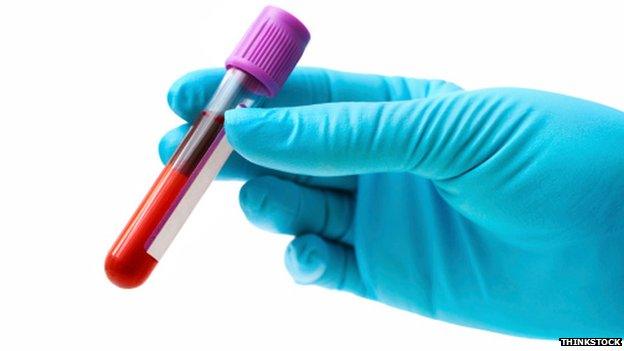Why are blood donors asked their sexual history?
- Published

The US Food and Drug Administration is considering lifting a ban on blood donations by men who have had sex with other men - even just once - since 1977. The blood is tested so what is the point of asking donors questions about their sexual history?
The ban was put in place as response to the spread of HIV and Aids in the gay community. But advances in testing and a better understanding of the disease mean the US is being urged to follow other countries, such as the UK, and allow gay men to donate blood as long if they have refrained from sex with another man for one year.
The 12-month deferral period is because it takes on average two to four weeks to pick up an HIV infection when testing blood and a couple of months to detect Hepatitis B. So the questions about a donor's sexual history filter out potential infections - although they inevitably mean people with healthy blood are not allowed to donate.
Although campaigners say they are enthusiastic about lifting the ban, they argue it does not go far enough. "Our goal is to eliminate sexual orientation from the deferral process and instead base the decision on an individual risk assessment," says Ryan James Yesak, founder of the US National Gay Blood Drive.
He says male or female donors should instead be asked if they have had receptive anal intercourse in the last year. But Dr Steven Kleinman, senior medical adviser to the American Association of Blood Banks, says who you have sex with is a better risk indicator than what you're doing with that person.
And in the US, he says, men who have sex with men make up the group in which HIV prevalence is highest. "Maybe the tool we use is crude - it's not a fine scalpel but more of a sledgehammer. But if we use a fine scalpel, we might miss some people."

Blood donation around the world:
UK (excluding Northern Ireland), Japan and Australia have a one-year ban on men who have had sex with another man
Canada has a five-year ban
no ban in Italy, Mexico, Poland, Portugal, Russia and Spain, but some of those countries have tougher screening questions

Reporting by Joanna Jolly
Subscribe to the BBC News Magazine's email newsletter to get articles sent to your inbox.